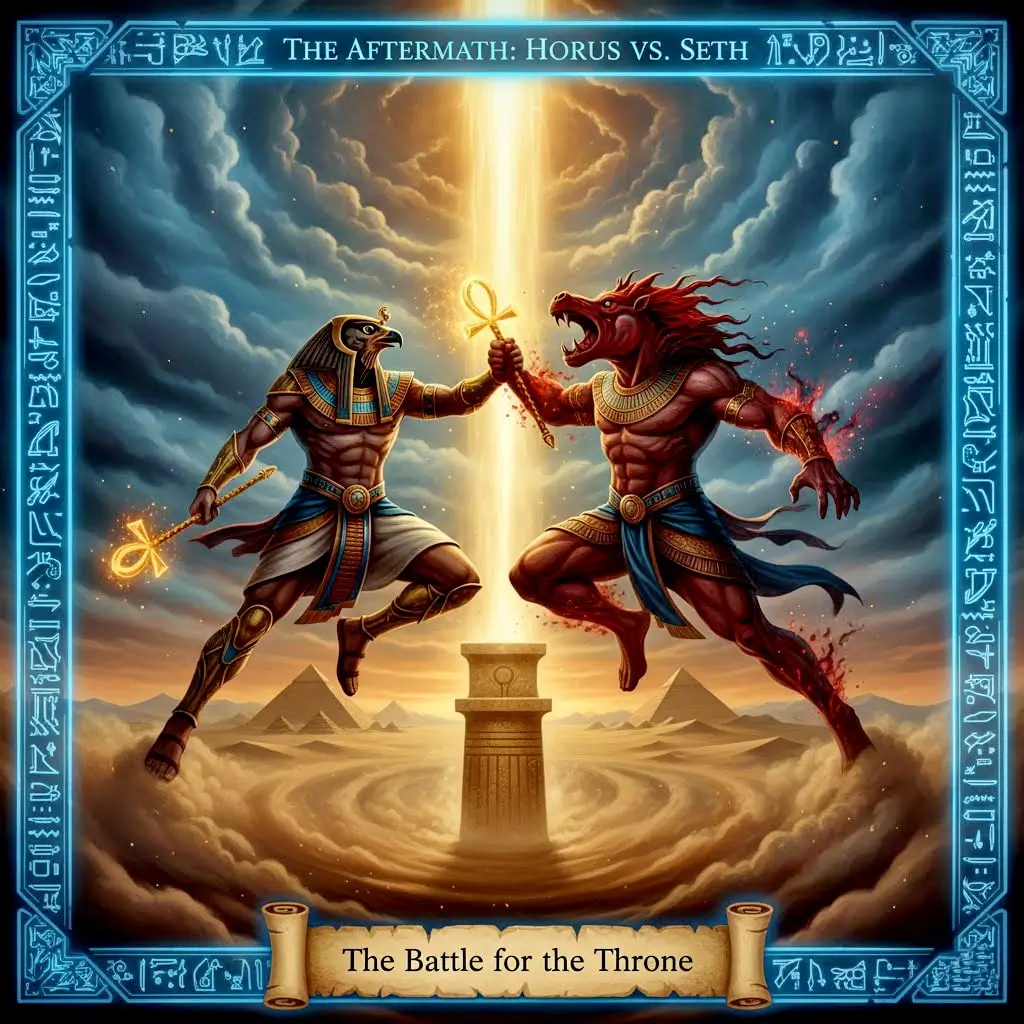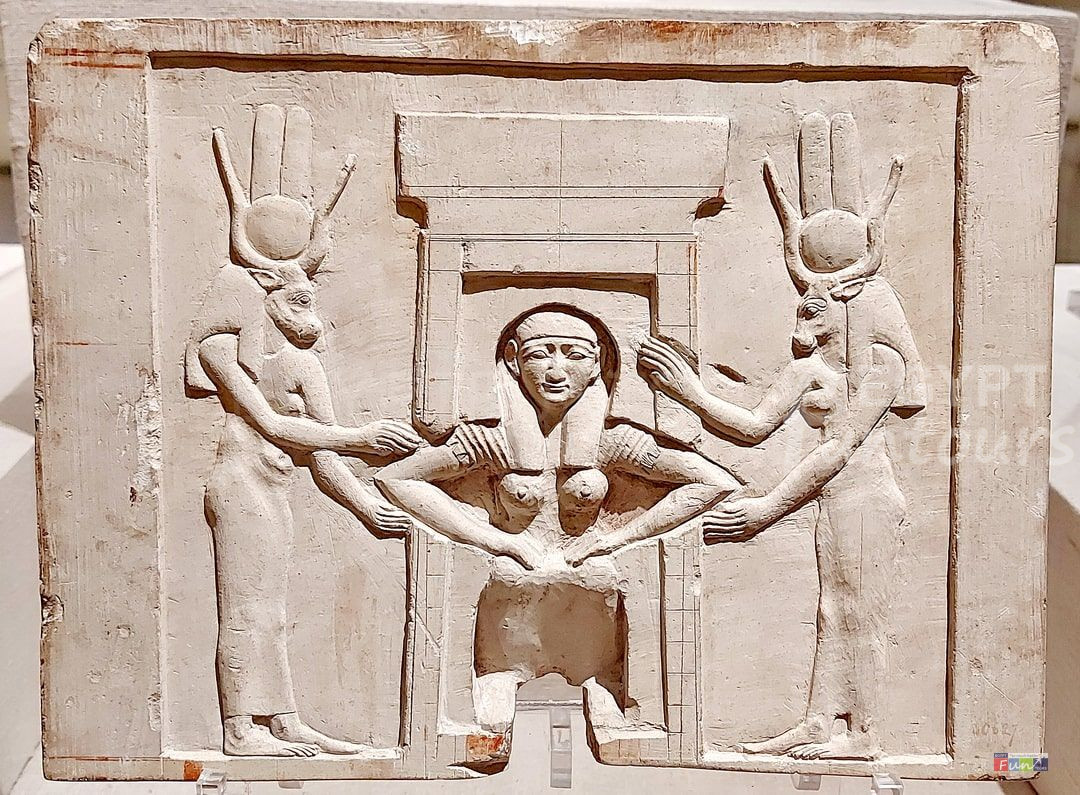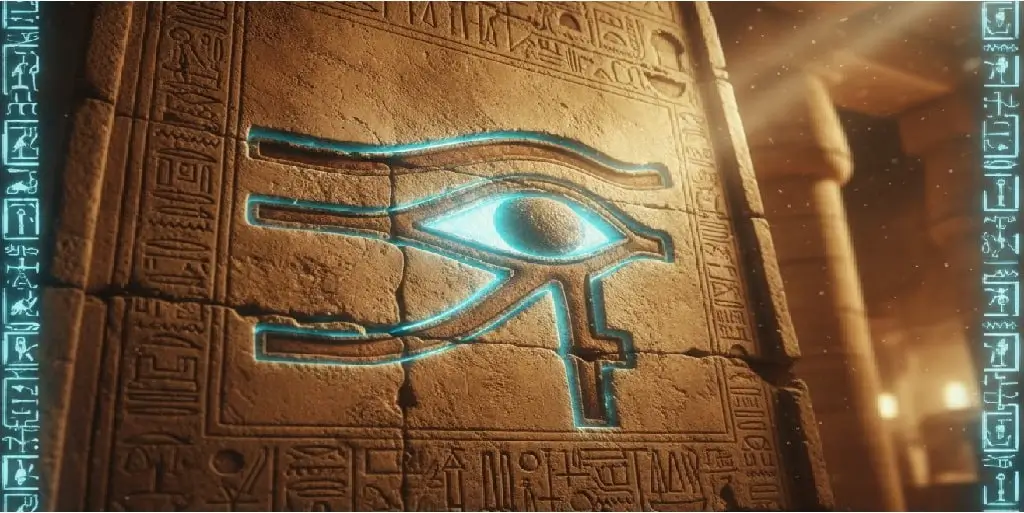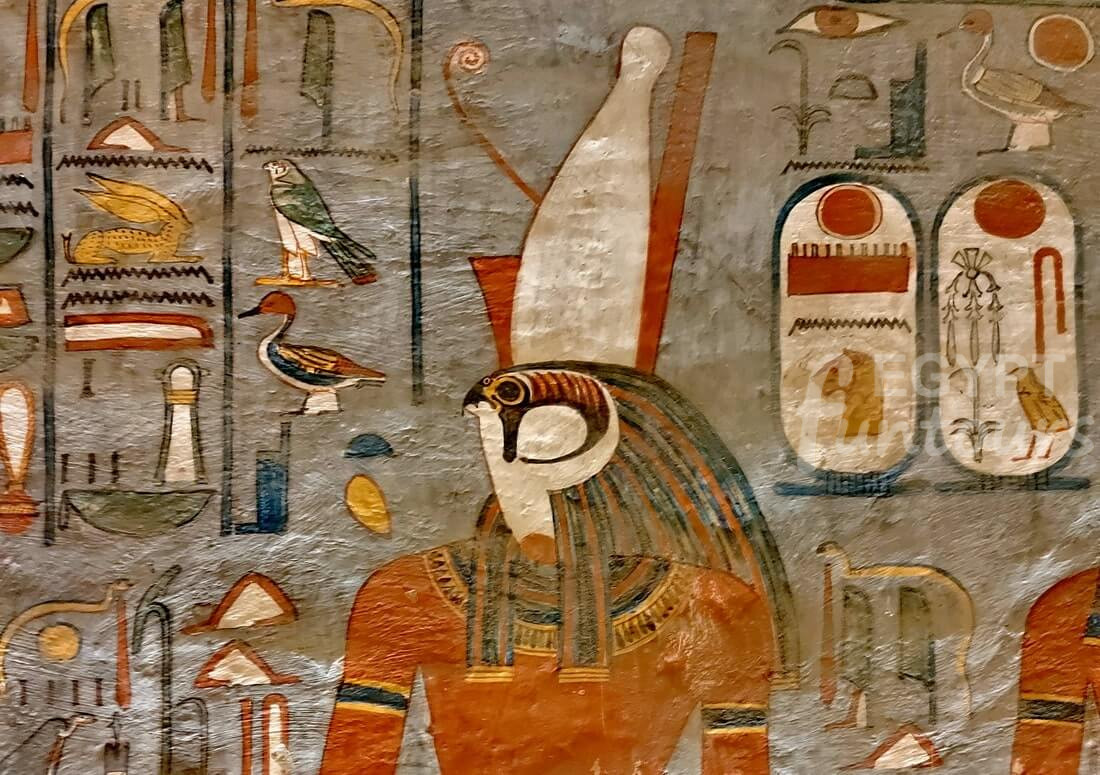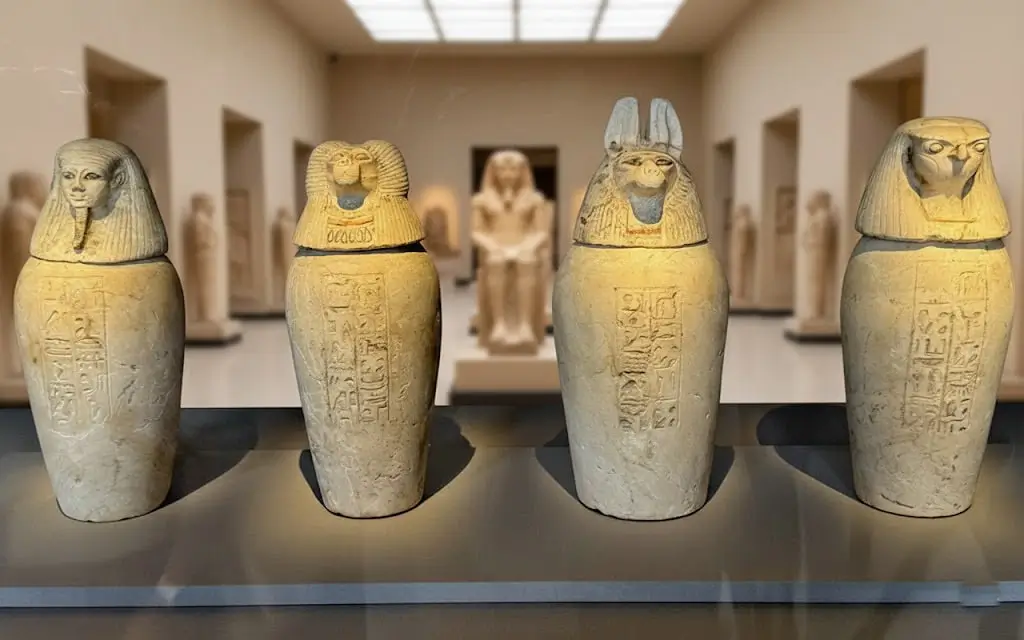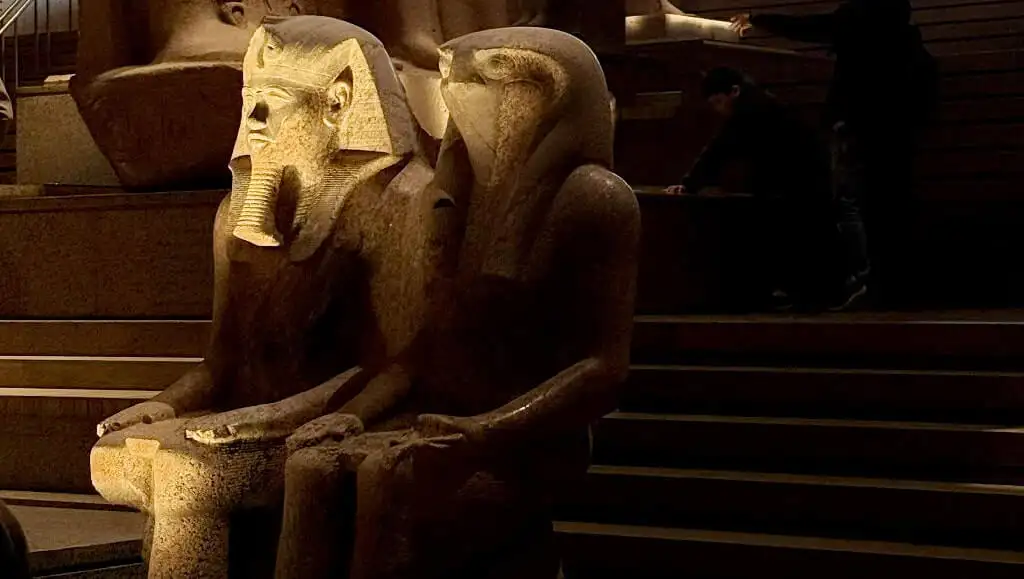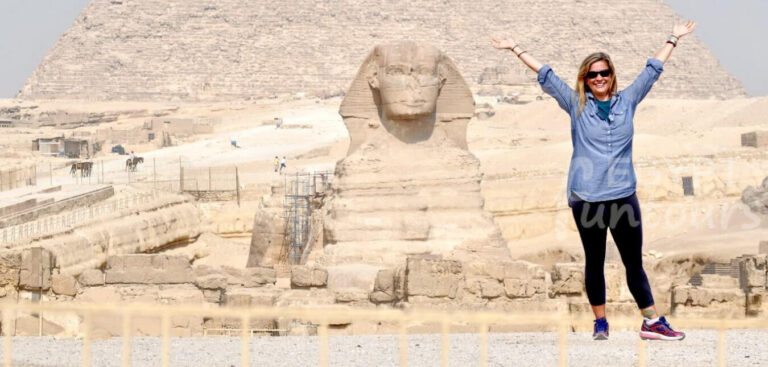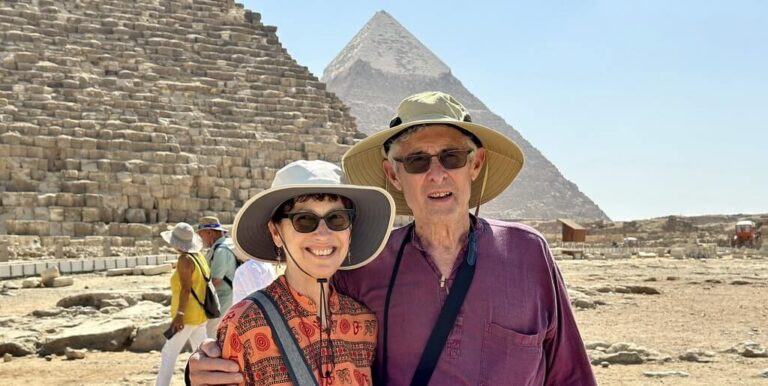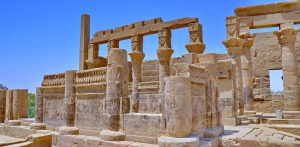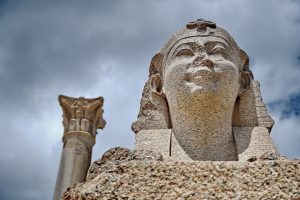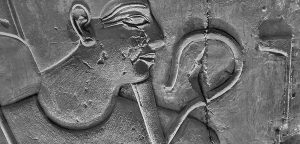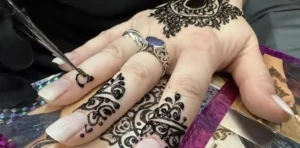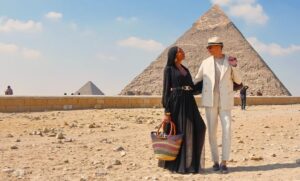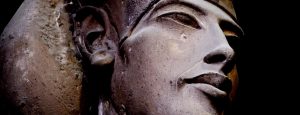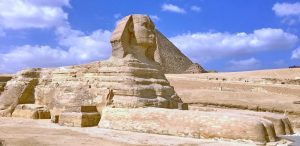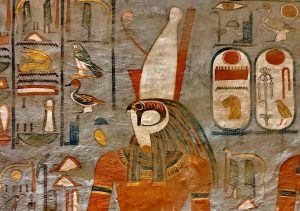🦅 Welcome to the World of Horus: The Falcon God
God Horus is arguably the most vital deity in the entire Egyptian pantheon. He is the ancient god of kingship, the sky, and powerful protection. You recognize him instantly. He is famously depicted as a majestic falcon or a man crowned with a falcon’s head. His story is not just a myth. It is the core narrative of order, justice, and succession in Ancient Egypt.
Every pharaoh, from the earliest dynasties, was considered the living manifestation of Horus on Earth. This divine link made Horus the cornerstone of Egyptian political and religious life for millennia. Therefore, understanding Horus is necessary to understand Ancient Egypt itself.
His powerful story is intrinsically linked to the central Osiris myth. Here, Horus achieves his greatest triumph. He avenges his murdered father, defeats the chaotic god Set, and victoriously restores divine order to the land of Kemet. In fact, this epic contest is the most famous story in the entire religion. We will explore his birth, his battles, and his enduring legacy. This guide will offer you the most complete and authoritative look at the Falcon God.
Understanding the Forms: Horus the Elder vs. Horus the Younger

The name “Horus” can be confusing. Consequently, we must clarify a common misunderstanding right away. Ancient Egyptians worshiped several gods known by the name Horus. They are often split into two main figures.
Horus the Elder (Haroeris)
Horus the Elder, or Haroeris, is the older version. Generally speaking, he is a primeval sky god. He is the brother of Osiris and Set. His eyes were the sun and the moon. This version represented the vast, original expanse of the sky.
Horus the Younger
Horus the Younger is the most famous version. He is the son of Osiris and Isis. This figure is the one who fought Set. He is the focus of the kingship myth. Therefore, when people refer to the “God Horus,” they are almost always speaking of this powerful, royal son. We will focus primarily on this royal son throughout this guide.

